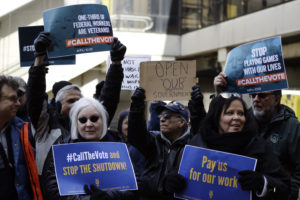Americans Don’t Party Like They Used To
Depressed finances, artisanal culture and the comfortable snare of social media may be leading millennials to throw and attend fewer house parties than previous generations of Americans.
Depressed finances, artisanal culture and the comfortable snare of social media may be leading millennials to throw and attend fewer house parties than previous generations of North Americans.
News of the decline is concerning because regular opportunities to interact free of the kinds of rules that govern other types of social environments, such as in business or education, are necessary for full social development, psychologists say.
“In college, there were way more house parties, but I’ve only been to a handful in my two years since,” Mitchell Friedman, a 24-year-old who lives in Brooklyn, told The New York Times. “My roommates and I never threw any parties, either.”
Madeleine Watson, 29, of Vancouver, British Columbia, said: “I’ve been to, maybe, three or four house parties in the last couple of years, and they’re always Halloween or New Year’s or a holiday event. And it’s always the same house and the same people throwing it.”
In their first couple of years in Brooklyn, Christine Vines, 27, and her roommate hosted maybe two house parties, Vines told the Times. “That was a trial,” she said. “We decided it was more effort than it was worth. I went to a handful a year, usually Halloween or New Year’s.”
The Times reports:
According to the Bureau of Labor Statistics, the average number of hours per day 15- to 24-year-olds spent attending or hosting social events on weekends or holidays — the times they are most likely to go to parties — declined sharply from 2003 to 2014 to nine minutes from 15. (That may not seem like much, but consider that this is the average of all those who fit the demographic.) The percentage who participated in these activities dropped to 4.1 from 7.1 over the same span.
Their tame night lives began in high school. According to a nationwide annual survey by the University of California, Los Angeles, the time high school seniors devoted to partying has slid drastically over the decades. Except for a few years, the number of homebodies who never attended parties as high school seniors has steadily increased, to 41.3 percent in 2014 from 11.6 percent in 1987, and it’s accelerated in the new millennium, more than doubling since 2001. Over a third of Gen X high schoolers fought for their right to party at the tail end of the Reagan administration, spending more than six hours per week at gatherings; just 10.7 percent of the most recent Obama-era high school seniors did. …
There are a number of obvious reasons the modern Internet may make parties an unpalatable option on a Saturday night compared to the pleasures of a screen. First, there’s the communal connection one may get without much emotional strain from social media, texting or instant messaging. The panoply of at-home entertainment options now immediately available renders quaint the impoverished selection at a 1990s Blockbuster. And if you’re looking for a new romantic partner, swiping for 10 minutes on Tinder may be more efficient than trekking an hour each way only to encounter the same people you always see. …
The rise of foodie culture, too, has stabbed a Ginsu knife of culinary anxiety into the hearts of potential hosts; Mr. Richman’s “potato chips sitting there” won’t cut it in the Kale Age. Ms. Watson used to hold an annual Christmas party but stopped two years ago because it was too much work to meet the unspoken dietary expectations of her guests, who are used to “spreads of gluten-free sprouted crackers,” she said. “It took me four days to make all the food, and I put a huge amount of pressure on myself.” …
More financially injurious, however, is the exorbitant rents that millennials often pay, and that it situates them in neighborhoods where their friends don’t go (or, even less appealingly, with their parents). In New York, gentrification has led to a multiborough diaspora of the city’s young adults. No longer does a high concentration live in one relatively inexpensive, centrally located area, as was the case in Greenwich Village in the 1960s or the East Village of the ’90s.
Read more here.
— Posted by Alexander Reed Kelly.
Your support matters…Independent journalism is under threat and overshadowed by heavily funded mainstream media.
You can help level the playing field. Become a member.
Your tax-deductible contribution keeps us digging beneath the headlines to give you thought-provoking, investigative reporting and analysis that unearths what's really happening- without compromise.
Give today to support our courageous, independent journalists.





You need to be a supporter to comment.
There are currently no responses to this article.
Be the first to respond.